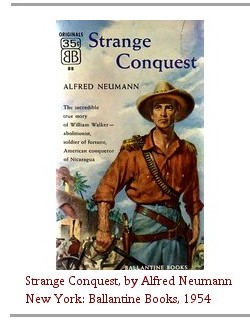Excerpt
They pushed through the roadblock and ran along the houses in two columns without losing a single man. They received fire, but it was irregular, inaccurate, and seemingly hesitant. Two men were lost at the next roadblock and here it became apparent that the enemy took poor aim, fired too high, and couldn’t face a frontal attack, especially when the attackers yelled. The Falange got through.

But then there was yelling behind them in their own tongue, terrible in its agony. Now they knew that one of the two who had gone down before the roadblock had not been dead, but would be soon. They wanted to go back.
“Keep going!” roared Kewen, brandishing his pistol.
They got a few paces further, then drew fire from every window, and behind them the road block closed like a cattle gate.
“Keep going!” Kewen yelled, and they snarled at him like angry dogs. He dropped his pistol, stunned by their mutiny.
They crawled into the two nearest houses on their right and left and, roaring with rage, cleaned them of five snipers each. They cleaned them out with their bayonets.
They didn’t budge from those holes. Five of them now lay outside, between the two houses, and two lay back by the roadblock. That made seven. Jonny Felice lay in the outskirts of the town. That made eight. In Tola under the rattling coconuts lay Crocker. That made nine.
Achilles Kewen was still around. He popped back and forth between the two houses, made speeches, insulted the troops, wasted his luxuriant stock of Kentucky curses on them. They didn”t budge from their holes. Every time he skipped across the street, he was fired on, and finally it got too much for him, or he lost his head. He planted himself in the middle of the street and yelled: “You yellow bastards! You yellow bastards!” He yelled it only twice. Then he ripped his mouth wide open as for a huge laugh, and only when he pitched forward did anyone see the hole in his forehead. Now there were ten gone.
Comments
This is one of the few books discussed on this site whose publisher seems to have deliberately set out to keep it neglected. First published in German in 1949 as Der Pakt, it was translated by Ransom Taylor and published by Hutchinson in 1950 as Look Upon This Man. Unable to find a major publisher in the U.S. for the book, Alfred Neumann settled for its release by the fledgling paperback publisher, Ballantine Books. Ballantine sat on the book for several years, at a loss for how to market this fictional account of William Walker’s invasion and takeover of Nicaragua in 1855, decided to treat it as a Western. That any serious reader ever discovered the book after that was close to miraculous, and any fan of Westerns would have given up after finding it had nothing to do with sheriffs and cowboys.
Neumann himself faded from critical and popular attention even before the book was published. Once considered an equal of Arnold Zweig and Hermann Broch, Neumann saw his star peak in the late 1920s. His medieval tale of courtly intrigue, The Devil, was a best-seller in the U.S. and Ernst Lubitsch directed an Oscar-nominated film of his play, “The Patriot”.
Within a few years, however, he found himself worse off than when he started. His magnum opus, a trilogy about the life of Napoleon III, was panned by most critics as overwritten and tedious. His books were among the first to be banned by the Nazis, who also pressured Mussolini to force Neumann to leave Italy, where he had settled in the 1920s. Like Brecht, Mann, and other less famous German writers, he eventually found refuge in Hollywood, where he got occasional work as a screenwriter. He was nominated for an Oscar for Best Original Story for “None Shall Escape” and his novel, The Six of Them, the earliest account of the White Rose resistance movement in Germany, was well received. But Neumann had little luck finding work or publishers from then on, and he died in 1952, a self-exile in Switzerland like Mann.
Influenced by Laurence Greene’s 1937 biography of Walker, The Filibuster, Neumann wrote Der Pakt quickly, hoping to regain his former popularity with German readers. While the novel failed to win more than passable sales, its narrative and style clearly benefits from Neumann’s haste. In contrast to his rather verbose historical novels of the late 1920s and 1930s, in Strange Conquest Neumann’s writing is lean, fast-moving, and, at points, almost telegraphic in its brevity.
Yet he manages to squeeze an almost panoramic view of Walker’s career into less than 200 pages. Much of the novel is related in vignettes of three to five pages, most of them dramatic set-pieces like the retreat of Walker and his 36 men from their abortive attempt to form an abolitionist republic in Baja and Sonora, Mexico in 1853, or the destruction of Granada as Walker’s rule in Nicaragua collapses. Walker himself remains something of an enigma, yet Neumann manages to suggest how the appeal of power ultimately led Walker to turn from abolitionist to dictator, even reinstating slavery in an attempt to maintain his power.
Neumann also sketches in a wide cast of supporting players, from his officers–an idealistic socialite from San Francisco, a gambler of murky French origin, a Prussian baron–to the scoundrels and saintly figures he encounters in Nicaragua. One might go so far as to argue than Strange Conquest prefigures the magical realist style of later Latin American novelists such as Garcia Marquez, Fuentes, and Vargas Llosa. Take the author’s name and date of publication off Strange Conquest and it could easily be taken as the work of one of their contemporaries. Whatever the case, it certainly deserves a better fate than to be lost forever in mouldering stacks of Westerns in a few scattered bookstores in the U.S..
